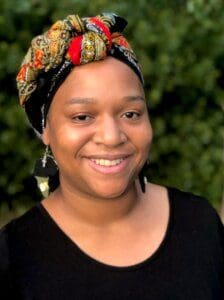How H.O.P.E. Is Closing the Gap on Savannah-Chatham’s Health Disparities
A status report on the $3.4 Million Racial and Ethnic Approach to Community Health (REACH) grant’s projects, partners and priorities.
(SAVANNAH, GA) In March 2020, everything changed. The Coronavirus crippled the American economy and many who were already living below the poverty line were hit hard. Sources of income dried up and service organizations that had helped in times past were hampered by shutdowns and emergency restrictions.
Meanwhile, in Savannah, a group of agencies and individuals working on a project called H.O.P.E. wondered what would happen to the program and to those who needed its services.
H.O.P.E. had launched a year and a half earlier, in September 2018, when a five-year REACH (Racial and Ethnic Approaches to Community Health) grant was awarded by the Center for Disease Control and Prevention (CDC) to the YMCA of Coastal Georgia in partnership with Healthy Savannah, a public-private partnership that strives to make Savannah a healthier place. The aim of Savannah/Chatham County’s REACH project, Healthy Opportunities Powering Equity or H.O.P.E., would be to reduce health disparities among African-American and Hispanic/Latino Americans in seven low-wealth zip codes across Chatham County through long-term solutions vs. short-term fixes.
Through this funding, the local REACH team was tasked with closing the gaps in health disparities among those populations in the areas of nutrition, physical activity, and community-clinical linkages. 14 local organizations would receive grant funding and, in partnership with 60 local stakeholder groups and individuals, the H.O.P.E. project was underway.
“And then, the world ground to a halt when COVID hit,” said Paula Kreissler, executive director of Healthy Savannah and the local REACH team. “It seemed certain that most REACH-funded programs would have to pause. But, because some were deemed essential to operate through the shut-down, our teams were able to shift gears in how we connect them to those who need them. As a result, many of those REACH-funded programs have flourished.”
The REACH team includes program managers over three core areas: Deidre Grim oversees the Nutrition program, Armand Turner manages Physical Activity and Ty McClendon administers Clinical-Community Linkages.
NUTRITION
One of the biggest successes to date is Farm Truck 912, the mobile version of the popular Forsyth Farmers’ Market. Even throughout COVID, it added four new stops and has operated six days a week on a schedule that takes it throughout Chatham County and across all economic strata.
Grim reports that Farm Truck 912 has seen a surge in demand, with overall sales up by 200 percent and a 400 percent increase in SNAP-funded purchases. The program launched its new Food Farmacy initiative in May and had its largest-ever one day sales on May 28, working with four health providers to serve low-wealth participants diagnosed at risk for chronic diet-related diseases.
“We also just wrapped up gathering data for our Photovoice Project, in which Black moms in Chatham county revealed their barriers to breastfeeding,” said Grim.
Led by Nandi Marshall, DrPH, MPH, Jiann-Ping Hsu College of Public Health, Georgia Southern University, the project’s goal was to delve into the disparity revealed by a 2007 CDC Breastfeeding Report Card showing African Americans have the lowest rates of initiating and continuing breastfeeding as compared to all other racial/ethnic groups in the United States. The participants of Marshall’s study unanimously agreed that cultural norms are the main barriers and they want to see more places to breastfeed in faith-based organizations and retail spaces. Marshall and her team are currently coding the data collected during the project and expect to issue a final report by the end of this fiscal year.
The HealthMPowers Corner Store program is another REACH-funded nutrition-based initiative continuing to serve the community healthier food choices during the pandemic, growing from two to three locations in the past several months, with a fourth set to reopen after the pandemic.
PHYSICAL ACTIVITY
Progress has also continued on the Tide to Town project. When complete, 30-plus miles of protected walking and bicycling trails will connect all of Savannah from the heart of the city to its waterways and marshes, including 62 Savannah neighborhoods, 30 public schools and all three major hospitals.
“The goal is to give families and kids a way to get all around the city and create a more active community,” said Turner. “Only one in two Americans are physically active and only half of adults get the physical activity they need to help reduce and prevent chronic diseases. In partnership with the Friends of Tide to Town, we are striving to help change that.”
Turner reports the first three miles of the section known as the Truman Linear Park Trail is currently nearing completion. When fully constructed, it will link 827 acres (1.3 miles) of existing parkland in Chatham County by connecting Lake Mayer Community Park to Daffin Park. The trail will provide an ADA accessible, off-road, shared-use path for transportation use by residents and tourists.
COMMUNITY-CLINICAL LINKAGES
The HERO (Health Effective Resource Organizations) Database launched in January 2020 to help empower Savannah-Chatham county residents to be their own health advocates. This directory of online health and social services resources lists 883 agency contacts across 57 categories from childcare to substance abuse, food access, clinics and more.
“The aim of the HERO Database is to close the referral look by connecting low-wealth residents with this one-stop, all-inclusive resource,” said McClendon. “It’s a more valuable tool now than ever before.”
During the pandemic, McClendon says the HERO Database has enabled local organizations to work stronger together. For example, COVID-related hardships have increased the need for SNAP, Georgia’s federally-funded food stamp program. But recent policy changes now allow households to apply remotely for SNAP benefits. Plus, the USDA increased its SNAP benefit allotments to provide greater opportunity for low-income households to participate in the program. REACH helped grow SNAP participation by fostering awareness, providing nutritious foods and increasing distribution sites through partners including Step Up Savannah and Farm Truck 912.
“H.O.P.E. is closing the gap, and we are aware this gap has widened due to the pandemic,” Kreissler said. “Our mission is even more crucial now and we continue to work across all sectors to increase access to healthy food and activity-friendly routes to everyday destinations with our most vulnerable populations because it helps all of us and is the right thing to do.”
ABOUT REACH SAVANNAH:
In September of 2018, The YMCA of Coastal Georgia and Healthy Savannah were awarded a five-year, $3.4 million dollar Racial and Ethnic Approach to Community Health (REACH) grant from the Center for Disease Control. Through this funding, the Savannah / Chatham County REACH team works to close the gaps in health disparities among priority populations in Savannah and Chatham County in the areas of nutrition, physical activity, and community – clinical linkages. The local project is called HOPE, Healthy Opportunities Powering Equity. Working with over 20 community partners and organizations, the REACH team works to provide equal and consistent access to ensure the health and wellness of our community through policy, systems, and environmental change. www.ymcaofcoastalga.org www.healthysavannah.org



MEDIA CONTACT
Marjorie Young
Carriage Trade Public Relations® Inc.
912.844.9990
www.carriagetradepr.com
marjorie@carriagetradepr.com
